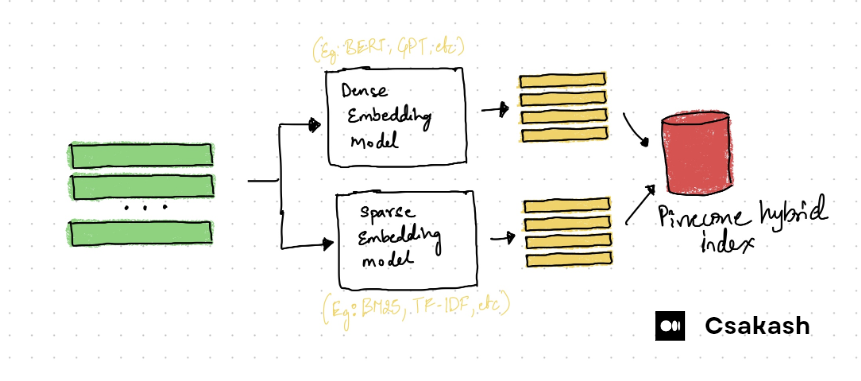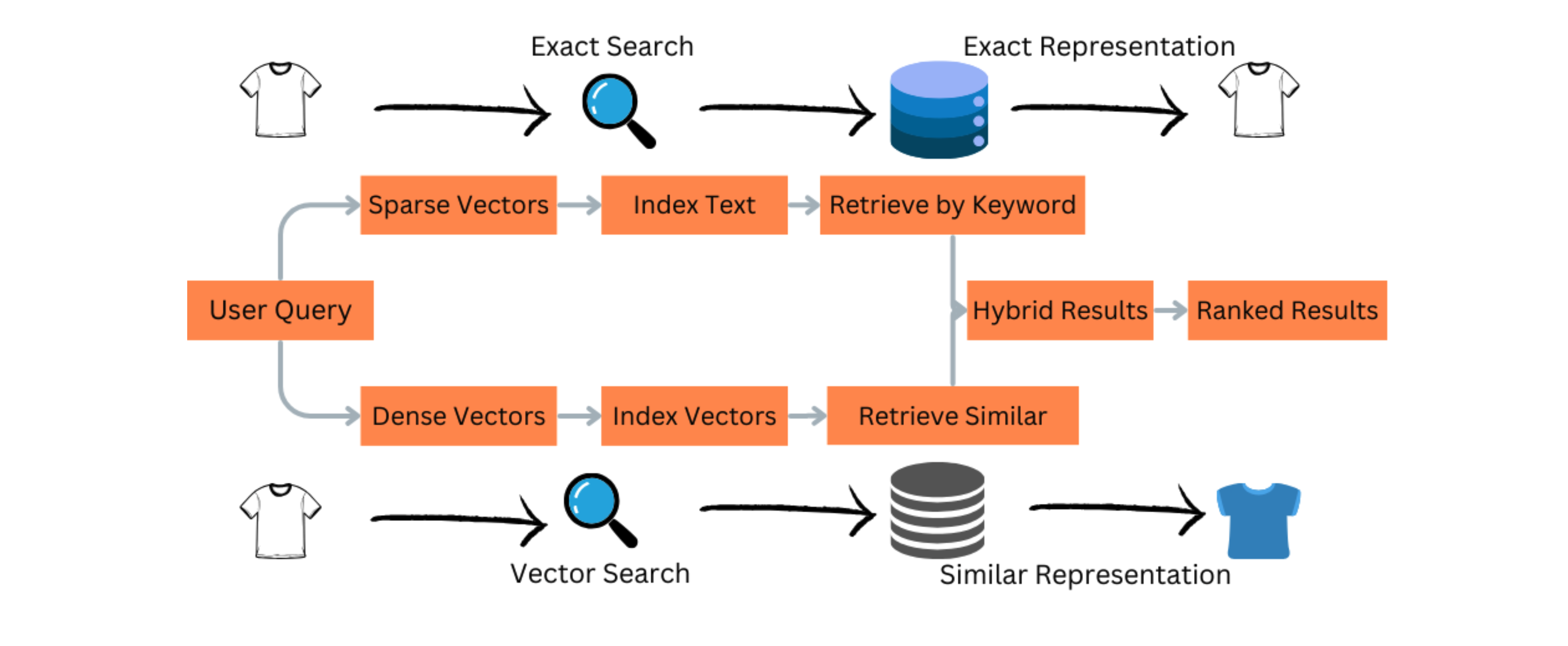- Published on
Unlocking the Power of Hybrid Search Combining Semantic and Keyword Approaches
- Authors

- Name
- Adil ABBADI
Introduction
Search algorithms have come a long way since the early days of the internet. From simple keyword matching to more sophisticated natural language processing, search engines have evolved to better understand user queries and retrieve relevant results. However, with the ever-growing complexity of search queries and the need for more accurate results, a new approach has emerged: hybrid search. This article explores the concept of hybrid search, which combines the strengths of semantic and keyword approaches to deliver more accurate and relevant search results.

- Understanding Semantic Search
- Understanding Keyword Search
- Combining Semantic and Keyword Approaches: Hybrid Search
- Benefits of Hybrid Search
- Challenges and Limitations of Hybrid Search
- Conclusion
- Further Exploration
Understanding Semantic Search
Semantic search goes beyond traditional keyword-based search by analyzing the meaning and context of user queries. It uses natural language processing (NLP) and machine learning algorithms to understand the intent behind a query and retrieve relevant results based on semantic relationships. Semantic search is particularly useful in scenarios where users ask complex or open-ended questions, or when searching for abstract concepts.
import nltk
from nltk.tokenize import word_tokenize
# Tokenize user query
query = "What is the best way to improve my tennis serve?"
tokens = word_tokenize(query)
# Perform semantic analysis
semantic_map = {}
for token in tokens:
semantic_map[token] = get_semantic_meaning(token)
# Retrieve relevant results based on semantic relationships
results = retrieve_results(semantic_map)
Understanding Keyword Search
Keyword search, on the other hand, is a more traditional approach that relies on exact keyword matching to retrieve results. This approach is simple, fast, and efficient but often lacks the depth and accuracy of semantic search. Keyword search is particularly useful in scenarios where users know exactly what they're looking for, such as searching for a specific product or service.
SELECT * FROM products
WHERE name LIKE '%tennis racket%'
OR description LIKE '%tennis racket%';
Combining Semantic and Keyword Approaches: Hybrid Search
Hybrid search combines the strengths of semantic and keyword approaches to deliver more accurate and relevant search results. By integrating these two approaches, hybrid search can handle complex queries, retrieve relevant results, and provide a more comprehensive search experience.

import keyword_search
import semantic_search
def hybrid_search(query):
# Perform keyword search
keyword_results = keyword_search(query)
# Perform semantic search
semantic_results = semantic_search(query)
# Combine results
combined_results = combine_results(keyword_results, semantic_results)
return combined_results
Benefits of Hybrid Search
Hybrid search offers several benefits over traditional keyword-based search or semantic search alone. These benefits include:
Improved Accuracy
Hybrid search can improve the accuracy of search results by combining the strengths of semantic and keyword approaches.
Enhanced Relevance
By retrieving results based on both semantic relationships and keyword matches, hybrid search can provide more relevant results that better match the user's intent.
Increased Flexibility
Hybrid search can handle complex queries and retrieve results that might not be possible with traditional keyword-based search or semantic search alone.
Challenges and Limitations of Hybrid Search
While hybrid search offers several benefits, it also comes with some challenges and limitations. These include:
Complexity
Hybrid search requires integrating two different approaches, which can be complex and resource-intensive.
Scalability
Hybrid search can be computationally expensive, which can impact scalability and performance.
Data Quality
Hybrid search is only as good as the data it's based on. Poor quality data can lead to inaccurate or irrelevant results.
Conclusion
Hybrid search has the potential to revolutionize the way we search for information online. By combining the strengths of semantic and keyword approaches, hybrid search can deliver more accurate and relevant results, improve user satisfaction, and provide a more comprehensive search experience. While there are challenges and limitations to hybrid search, the benefits far outweigh the costs. As we move forward in the era of search, hybrid search is likely to play an increasingly important role.
Further Exploration
Want to learn more about hybrid search and its applications? Check out these resources:
Explore the world of hybrid search and discover the possibilities!
